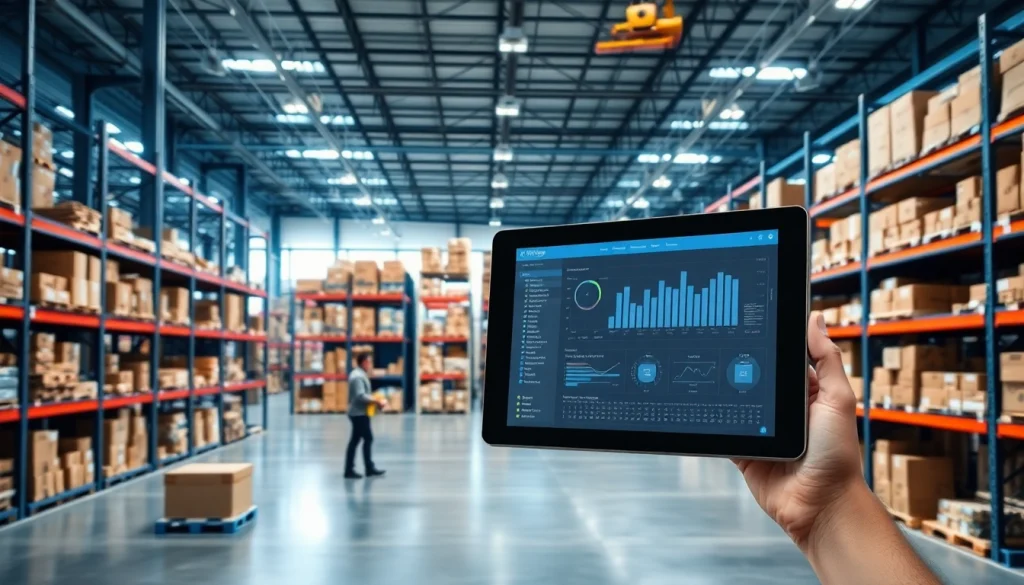Effective Depo Yönetimi Strategies for 2025: A Comprehensive Guide

Understanding Depo Yönetimi: Key Concepts
In the rapidly evolving landscape of business logistics and supply chain management, Depo yönetimi (warehouse management) has emerged as a critical component for organizations aiming to optimize their operations. Effective management of warehouse operations not only enhances the efficiency of inventory handling but also contributes to overall business success by minimizing costs and improving customer satisfaction. As we look towards 2025, the significance of adopting innovative approaches and technologies in warehouse management cannot be overstated.
1. What is Depo Yönetimi?
Depo yönetimi involves the systematic control of storage facilities and the processes associated with managing inventory levels, orders, and logistics. This process encompasses a variety of activities, including the receipt of goods, storage, order picking, packing, and shipping. Efficient depo yönetimi ensures that products are stored in an organized manner and that the right items are delivered on time, thus enhancing the service level provided to customers.
At its core, depot management seeks to create a seamless link between the suppliers and consumers. This involves overseeing the flow of goods from suppliers to the warehouse and from the warehouse to customers. Effective depot management systems utilize advanced technology to automate processes and integrate information, leading to improved accuracy and reduced labor costs.
2. Importance of Inventory Control in 2025
As businesses strive to stay competitive in an increasingly global market, the importance of inventory control in depot management continues to grow. By 2025, organizations will need to focus on real-time inventory visibility to manage their supply chains effectively. This visibility allows businesses to respond promptly to changes in demand, avoiding stockouts or excess inventory.
Moreover, improved inventory control contributes significantly to cost reduction. Companies can minimize holding costs and reduce waste by accurately tracking inventory levels and turnover rates. With the integration of technologies such as Artificial Intelligence (AI) and the Internet of Things (IoT), businesses can predict demand patterns and adjust their inventory accordingly, leading to more informed decision-making.
3. Common Challenges in Depo Yönetimi
While effective depo yönetimi can yield significant benefits, many organizations face challenges in its implementation. Some of the most common obstacles include:
- Data Inaccuracy: Inaccurate data can lead to poor decision-making, resulting in stockouts or overstock situations.
- Complex Processes: Many businesses have complex operations that can hinder efficient inventory flow and increase operational costs.
- Technology Integration: Difficulty in integrating new technologies with existing systems can limit the effectiveness of depot management strategies.
- Staff Training: Inadequate training of staff on advanced systems can reduce operational efficiency.
Best Practices for Efficient Depo Yönetimi
1. Implementing Advanced Software Solutions
Adopting advanced software solutions is vital for effective depot management. Software systems designed specifically for warehouse operations can significantly enhance efficiency by automating tasks such as inventory tracking, order processing, and reporting. These solutions allow businesses to gain real-time insights into their inventory levels, manage stock replenishment proactively, and streamline order fulfillment processes.
2. Streamlining Operational Processes
To achieve optimal performance in depot management, businesses must analyze and streamline their operational processes continually. This can include redesigning workflows, eliminating unnecessary steps, and ensuring that technology complements human efforts. Streamlining operations not only boosts efficiency but also lowers operational costs, allowing for quicker response times to customer demands.
3. Regular Training and Support for Staff
Investing in regular training for warehouse staff is crucial for maintaining an effective depot management system. Employees should be well-versed in the latest technologies and procedures to ensure smooth operations. Continuous training helps reduce errors, increases employee confidence, and promotes a culture of efficiency and accountability within the workforce.
Technological Innovations in Depo Yönetimi
1. The Role of Automation in Warehousing
Automation technology is revolutionizing the field of depo yönetimi. Automated solutions such as robotics and conveyor systems enhance the speed and accuracy of warehouse operations. These technologies assist in tasks ranging from inventory storage and retrieval to sorting and packing, thereby significantly reducing manual labor and the potential for human error.
2. Utilizing AI for Inventory Management
Artificial Intelligence (AI) plays a pivotal role in modern inventory management practices. AI systems can analyze vast amounts of data to forecast demand accurately, making it easier for businesses to optimize their inventory levels. Through predictive analytics, organizations can better align their stock with future demand, ultimately resulting in improved service levels and increased profitability.
3. Upcoming Trends for 2025 and Beyond
The future of depot management is likely to see continued integration of advanced technologies such as augmented reality (AR) and machine learning. These innovations will enhance inventory management capabilities and improve operational efficiency. In 2025, businesses will increasingly rely on data-driven decision-making, utilizing insights gathered from various sources to inform their depot management strategies.
Case Studies: Success Stories in Depo Yönetimi
1. Analysis of Leading Companies
Several companies have successfully transformed their depot management practices through innovative strategies and technologies. For instance, a major retail company implemented an advanced ERP system that integrated their inventory management with sales data, allowing them to optimize stock levels based on real-time sales trends. This integration significantly reduced carrying costs and improved customer satisfaction by ensuring product availability.
2. Impact of Effective Depo Yönetimi on Business Growth
Effective depo yönetimi has a profound impact on business growth. Companies that prioritize their warehouse processes can scale their operations more efficiently and respond to market demands quicker than competitors. For instance, a logistics firm that streamlined its depot management through data analytics was able to cut delivery times by 30%, leading to enhanced client satisfaction and a significant boost in revenue.
3. Lessons Learned from Real-World Applications
One of the key lessons learned from successful depot management implementations is the necessity of flexibility. Organizations that adopt a flexible approach, allowing rapid adjustments to their processes and technology, tend to thrive in the dynamic market landscape. Additionally, the importance of maintaining open communication among all departments involved in depot management cannot be overstated, as it leads to more cohesive efforts in achieving overall goals.
Future Predictions for Depo Yönetimi Practices
1. Expected Changes in Supply Chain Dynamics
As we approach 2025, supply chain dynamics are expected to evolve significantly. The shift towards more decentralized supply chains will enhance the importance of warehouse coordination and collaboration. Companies will increasingly leverage technology to improve transparency and connectivity throughout their supply chains, ensuring that depot management aligns with broader organizational objectives.
2. The Evolution of Consumer Expectations
Consumer expectations continue to rise, with demands for faster, more reliable deliveries and transparent order tracking. Thus, effective depo yönetimi will be critical for businesses aiming to meet these expectations. Companies will need to harness innovative technologies that enable real-time visibility of inventory and order status, ensuring that customer demand is met promptly.
3. Preparing for Data-Driven Decision Making
Finally, preparing for a landscape dominated by data-driven decision-making is crucial for future depot management strategies. Organizations must invest in technology that gathers and analyzes data effectively, enabling them to make informed decisions about inventory management and warehouse operations. By 2025, businesses that harness the power of data analytics will likely outperform their competitors in efficiency and customer satisfaction.







